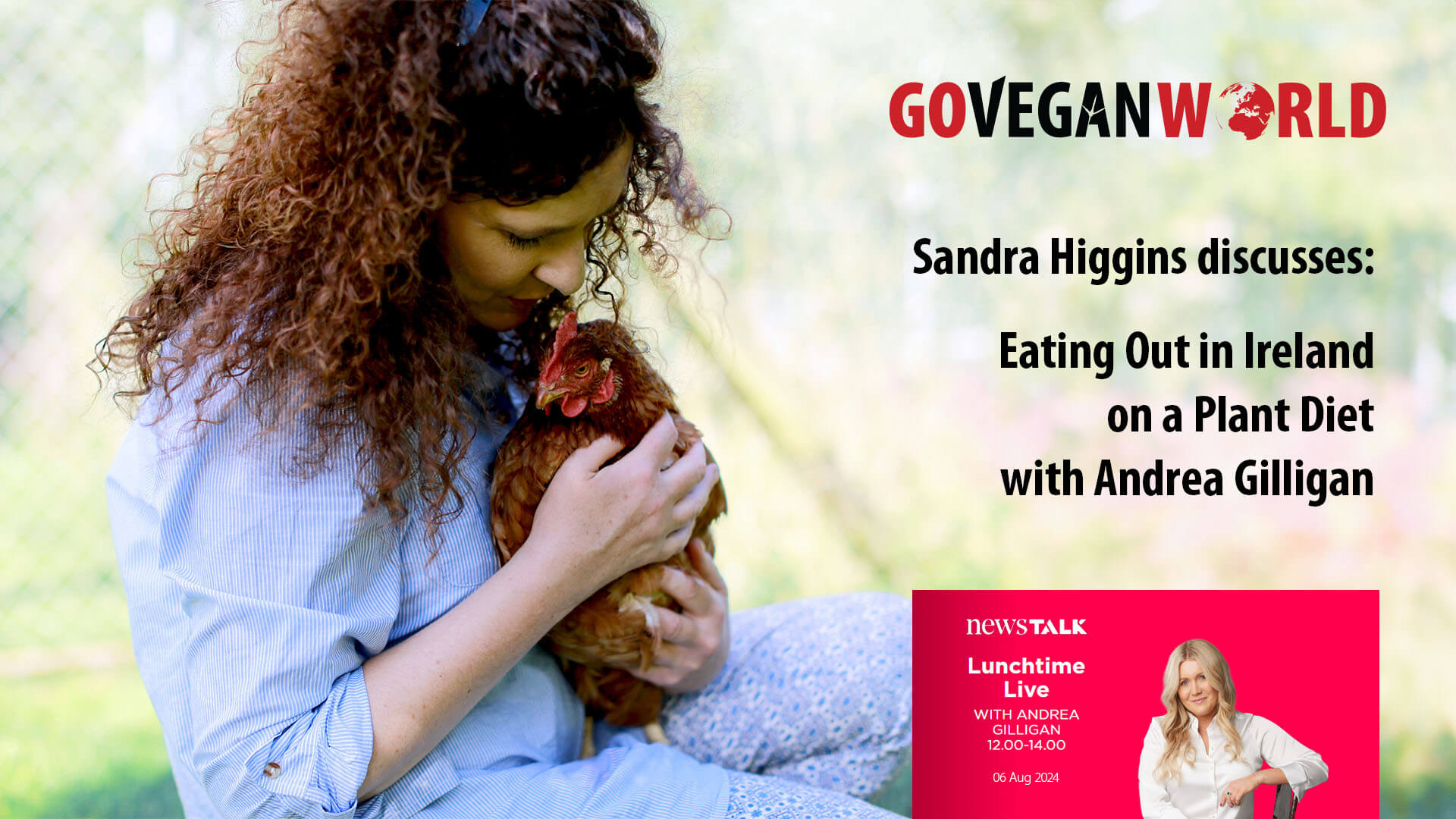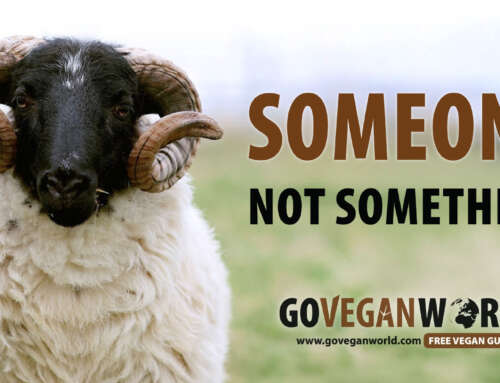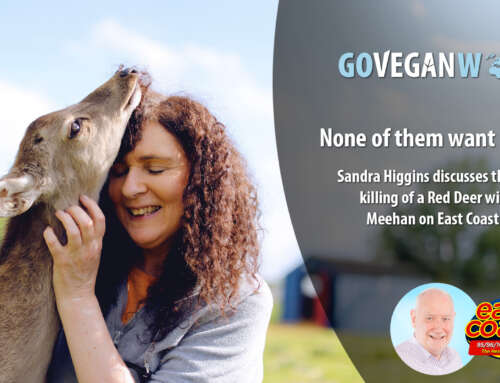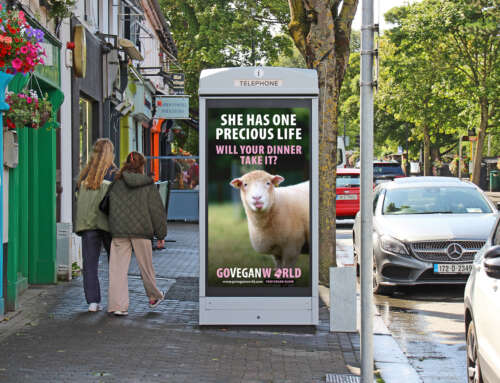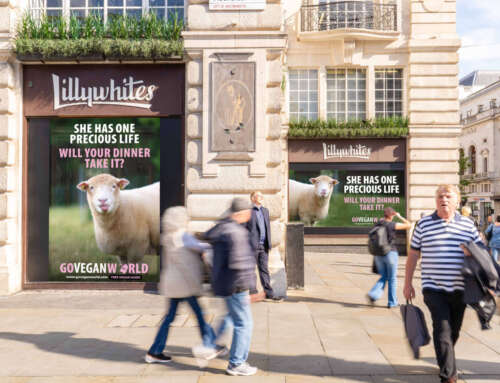Eating Out on a Plant Diet in Ireland: Andrea Gilligan, Lunchtime Live, Newstalk Radio chats to Sandra Higgins of Go Vegan World
Andrea Gilligan, presenter on Newstalk’s Lunchtime Live, recently decided to experience what it is like to eat a plant-based diet, including eating out in restaurants in Ireland. Sandra Higgins, Director of Go Vegan World chatted to Andrea on today’s show about how vegan options in Irish restaurants have improved but still have a long way to go to meet the standards demanded of vegans.
Some Improvements in Restaurant Options but Room for more
When we first ran our Go Vegan World campaign in Ireland in 2015, most people could not even pronounce the word vegan. There were very few places that catered for vegans. It was difficult to even get a coffee made with plant milk. In the intervening years, things have improved. To the surprise of most vegans in Ireland, in 2021 Dublin was ranked the fourth city in Europe with the highest share of vegan friendly restaurants[i]. In 2024, most food outlets can provide something suitable for vegans. Some restaurants are outstanding. But given the challenges faced by vegans seeking to eat out in restaurants, there is a lot of room for improvement.
Challenges faced by Vegans in Food Outlets
Misunderstanding of Dietary Requirements of Vegan
Vegans eat a 100% plant diet and avoid all animal products. Most of the problems vegans face in food outlets are the result of insufficient understanding of what a vegan diet entails. As a result, vegans frequently find dairy and eggs adulterating the food delivered to them. Chefs and restaurant staff confuse vegetarianism with veganism. Some even confuse a gluten-free diet with veganism.
Limited Vegan Options
Andrea has only tried eating plant-based in restaurants for two weeks and already she can see that chickpea curry, stir fry and house made veg-burgers are ubiquitous. This shows a lack of culinary imagination on behalf of chefs, at best, and laziness and lack of respect for their customers at worst.
There is a large variety of wonderful ingredients that can be used to produce delicious vegan food. We have (once) had the experience of eating at Paradiso in Cork and this is the standard to which every chef in Ireland should aspire, albeit this is fine dining. At the very least, restaurants should be able to offer vegan meals that are as tasty as the non-vegan options they offer. Every chef should be able to offer soup, a variety of salads and breads, and main courses such as pizza, pasta, and Asian food of a high standard.
Cross-Contamination
Food that is suitable for vegans must not be contaminated by animal products. Kitchens should ensure that food is stored, prepared and cooked separate to animal products and use utensils that are kept for vegan food only.
Vegans frequently order what appears to be a vegan option only to find that although the burger is made from plants, it is served with mayonnaise containing eggs or non-vegan cheese, or cooked in the same oil and utensils as animal products. Sometimes something as simple as French Fries are no longer vegan because they have been cooked in the same oil as animal products, thus rendering the entire dish unacceptable.
Incorrect labelling
Restaurants frequently mislabel items as suitable for vegans when they are not (e.g. categorising vegetarian foods such as eggs/cheese as vegan) or label plant foods that are suitable for vegans as unsuitable (e.g. coconut milk being labelled as a dairy product in take-aways).
Overcharging
Vegan options are frequently exorbitantly priced. I doubt any vegan minds paying for a beautifully presented, delicious meal using quality ingredients. But we object to being charged the same as expensive options on the omnivore menu when the food we are eating consists of the cheapest ingredients on the planet. Another bugbear of vegans is restaurants and cafes that charge a supplement for plant milk.
Omission of best vegan products from menus
In the last few years, excellent vegan replacements for animal products have come on the market. When restaurants fail to use the best possible ingredients, their food will be second rate. In general, the most popular vegan burger (Beyond Beef) should be the go-to choice of restaurants serving burgers. Some vegans do not like flesh replacements that taste like their equivalent animal products but many vegans like them and they are an excellent way of helping people transition from an omnivorous diet to a vegan diet. It is quite easy for restaurants to offer a homemade burger based on grain, pulses and vegetables but this should be in addition to, rather than in place of, the flesh analogue burger.
There are excellent artisan cheese producers and bakers in Ireland. Sadly, few restaurants make use of them.
Lack of options in rural areas
Vegan options are almost always easier to find in cities than in rural areas. Some food outlets claim to have nothing at all for vegans when, in fact, with a little discussion and imagination, they could easily make something suitable. After all, many soups, sandwiches and wraps can be easily ‘veganised’. What chef cannot produce a baked potato and salad, or a simple pasta dish without animal products?
Navigating Menus is Food Outlets
There are a few things people can do to make it easier to get good vegan options in food outlets.
There are restaurant apps such as Happy Cow that you can use to research food outlets in advance. However, they are not always up to date.
It is a good idea to google the area you intend visiting or the food outlet you are considering, to check out vegan-friendly restaurants and see if the current menu offers decent vegan options. Some travel guides and vegan sites list menus and include restaurant reviews.
Many chefs will make an extra effort if they have advance notice that a vegan intends eating at their establishment, so it is always worth your while calling in advance to chat about vegan options.
Good communication is essential, especially when explaining that you require your meal to be free of animal products including fish, flesh, eggs, dairy and honey. Remember that restaurant wait staff may not have thought about these issues and can easily forget that eggs are used in mayonnaise or may not know that vegans do not eat dairy or that honey is not vegan.
Restaurants are required by law to have an allergens list. You can use this list to decipher which meals are suitable for vegans. However, feel free to double check about less obvious items such as fish sauce in Thai and Chinese foods, and dairy in Indian food, soups, and sauces.
Consumer Demand
Between 2 and 4% of Irish people identify as vegans (Central Statistics Office, 2024) (albeit many of the surveys measuring the number of vegans use the incorrect definition of adherence to diet rather than the moral conviction that it is unjust to use other animals as human resources).
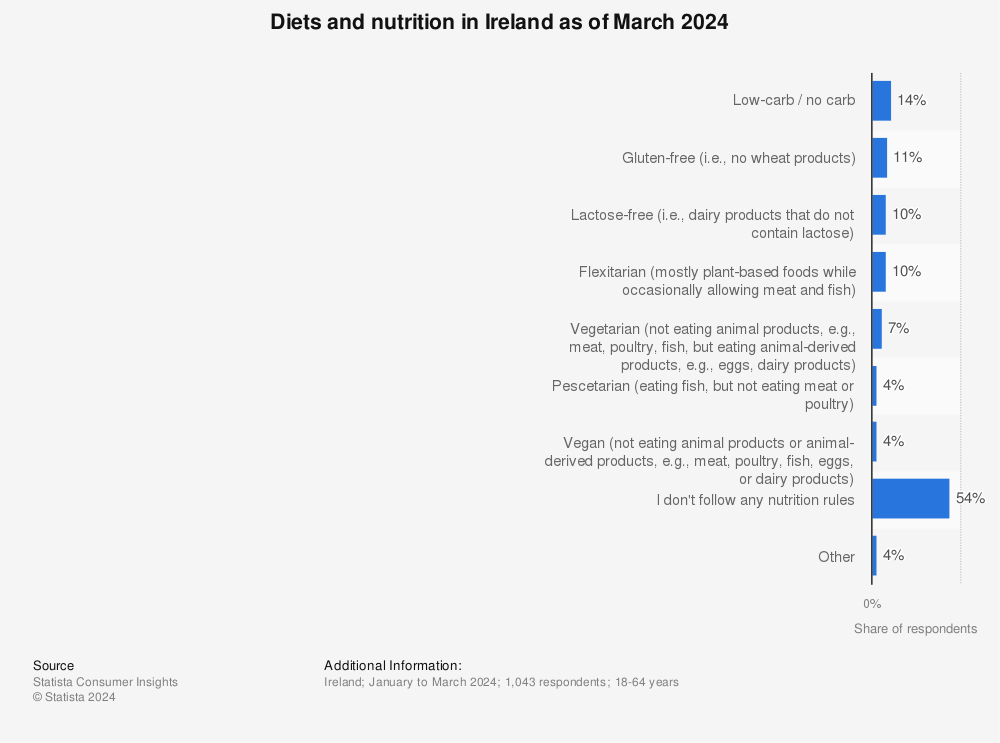
One third of Irish people use plant-alternatives to dairy products[ii] and 40% of consumers want plant alternatives to animal products.[iii] Therefore, although we appreciate that food outlets face a challenge in adjusting to changes in consumer demand, offering good quality vegan options is very feasible given the numbers of people demanding plant-based alternatives to animal products.
Environmental Concerns
Andrea stated that she was motivated by the intersectional health and environmental benefits of plant-based food production and consumption. At the end of the show, a member of the public suggested that plant menus be subsidised as a method of helping to curb GHG emissions and environmental damage. Most people in Ireland (67%) are not aware that the animal agriculture sector is the greatest contributor to the pollution responsible for climate change[iv]. Changing to a plant-based diet is by far the easiest and most effective way to reduce our carbon footprint, reduce loss of biodiversity, and protect our environment. Sandra quoted a recent study at the University of Oxford that analysed the diets of 55,000 individuals in the UK, utilising data from 38,000 farms across 119 countries. The peer reviewed study published in the journal Nature Food, revealed that a vegan diet results in a 75% reduction in emissions, water pollution and land use compared to non-vegan diets (those exceeding 100g animal flesh daily). Additionally, the study demonstrated that a vegan diet diminishes wildlife destruction by 66%, water use by 54% and methane emissions by 93.5% (Scarborough et al, 2023).
How Human Rights & Equality Legislation applies to Vegans in Food Outlets
Veganism is a way of living that excludes any form of animal exploitation, harm, or death. It is the manifestation of the belief that it is wrong to use other animals as our resources and unjust to harm and kill them.
The right of vegans to live according to this fundamental conviction that it is wrong to use and kill non-human animals, is protected under European human rights law and equality law. Since 1993 veganism has been recognised as a protected philosophical conviction in European human rights case law. This means that service providers have an obligation to avoid any discrimination or harassment on the grounds of veganism. By failing to provide vegan food, food outlets are in breach of vegans’ rights.
Trying out a plant diet is not a moral conviction, so people who are trying out the dietary aspects of veganism do not have the same protection as those whose lives are a manifestation of their moral philosophy about other animals’ rights.
Veganism and the Animal Rights Movement
People go vegan following a radical alteration in how they think about other animals. Once they make the decision to stop exploiting them, there is no going back. Being vegan is the manifestation of the belief that other animals are our sentient equals and not our resources. It is a way of living that avoids any product or practice that uses, exploits, harms, or kills our fellow beings on this earth. Being vegan entails eating a plant-only diet, but vegans also boycott the use of other animals as clothing, for entertainment, research, and labour.
People are motivated to try a plant-based diet for any number of reasons including the benefits to the environment and the health benefits of a wholefoods, plant diet. But the essence of living vegan is recognising that other animals have rights. We can no more go vegan for two weeks than we can try being non-racist, non-homophobic or non-ageist for two weeks. People go vegan because they become aware of the injustice of animal use and make the decision to no longer personally participate in anything that demands the use of other animals. Learning about how our use of other animals harms them, and, in turn, learning about the intersectional harms to human rights, human health and the environment, is an extremely painful but necessary step to becoming vegan. It is so painful that it is understandable that many people take refuge in the frivolity of some aspects of the vegan lifestyle such as new products and vegan catering. But it is important that the essence of veganism (respect for animal rights) is not lost.
A useful example of why diet does not equate with vegan’s support for animal rights is the boycott of products of slavery during the Civil Rights movement. One of the products boycotted in the UK was sugar produced on slave plantations. Imagine for a moment how diluted and compromised the civil rights message of equality for people of colour would have been if the boycott on sugar had been promoted as a healthy diet rather than a means of ending the use of other humans as slaves on sugar plantations.
It is also worth noting that most of us visit restaurants as a form of socialisation. If we visit them because it is essential to eat and they do not cater for us, there is usually a supermarket that does. That is not true of catering in public institutions such as hospitals, schools, and prisons where people depend on the institution to provide an essential product that aligns with their moral values. Currently, many institutions fall far short of respecting the rights of vegans to food that is acceptable to them.
Go Vegan World encourages and supports restaurants, food outlets and public institutions to offer an improved range to vegans and those on a plant-based diet. If you are looking for advice and support, please contact us.
Please check the following links for information on your rights as a vegan eating in restaurants and food providers, The Psychology of Going Vegan, and The Cognitive and Emotional Precursors to Going Vegan.
[i] https://www.statista.com/statistics/1292985/top-european-cities-for-vegan-restaurants/
[ii] Plant-based dairy alternatives: Products available in supermarkets on the island of Ireland, and consumer behaviours and perceptions (October 2022) https://www.safefood.net/research-reports/plant-dairy-alts
[iii] https://straitsresearch.com/report/vegan-food-market/
[iv] https://www.epa.ie/our-services/monitoring–assessment/climate-change/climate-opinion-maps/

